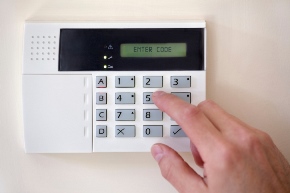 We’re not far from the beginning of spring. As the seasons change, you might prepare for new adventures away from home. Spring is definitely a popular season in which to travel.
We’re not far from the beginning of spring. As the seasons change, you might prepare for new adventures away from home. Spring is definitely a popular season in which to travel.
If you’re traveling for a long period, don’t forget about what you leave behind at home. Your belongings and your property still need protection, even while you’re not there. If you fail to protect your home when you leave, you might come home to a problem you don’t want to face.
The Hazards of Not Being Home
Every time you leave your home, something could happen in your absence. Improper wiring might cause a fire. A weather event might damage your roof, or a leaky pipe might burst. Your home might even experience invasions and theft. The longer you are not home, the more prevalent these risks might become.
On a positive note, your homeowners insurance can serve as protection while you’re away. Often, your policy will help you afford repairs if your home experiences damage from fire, weather, theft, vandalism or other incidents. Even so, just because you have coverage doesn’t mean you should not protect your home in other ways.
Preventing Home Problems on Extended Vacations
When you prepare to leave on an extended trip, get your home ready beforehand. The more you do to secure your home, the better your chances of finding it in perfect condition when you return.
- Many travelers shut off their electricity and water services during extended trips. This can help prevent fire or flood risks from developing in the home.
- At minimum, turn off and unplug unused appliances and electronics. Install in-home timers on certain electrical items. Random light timers can help it seem like someone is home when they are not.
- Take out your garbage and dispose of any items in the home that might expire or go bad while you’re gone.
- Schedule any home maintenance for before you leave home or after your return. If you allow maintenance services to visit while you’re gone, ensure someone trustworthy is there to meet them.
- Lock valuables, electronics and any loose funds in a secure areas. Use a safe, or place particularly valuable items in a safety deposit box.
- Stop your mail and paper service. Have a trusted neighbor collect these items and check on your home regularly.
- Arm your security systems to alert the police in case of an emergency.
If something happens while you’re gone, immediately contact your home insurer. Your agent can help you understand if your policy will cover resulting damage.